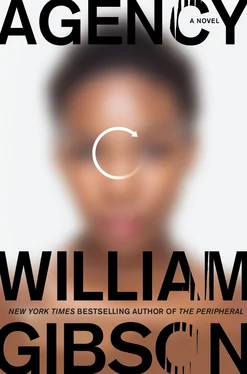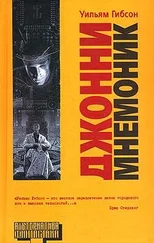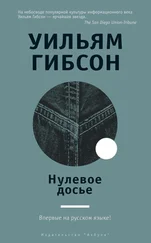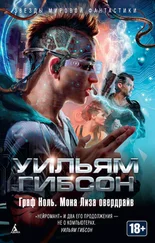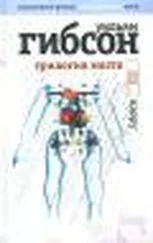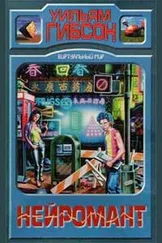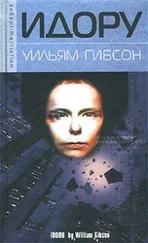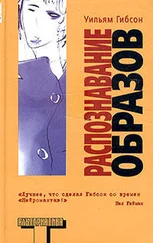“You don’t need to,” Rainey said. “Next time you’re here, I’ll show you more. You won’t have to believe that either.”
Lowbeer’s car began to descend, then, though much more slowly than it had risen.
56
That Non-Posthuman Touch
Netherton stood at the window, having watched the feed from the car. The quadcopter was descending back into Alfred Mews, the car beneath it. “Ash?”
“Yes?”
“When I spoke with Lowbeer earlier,” he said, “she was unhappy, about the possibility of this having some very bad outcome for Verity.”
Silence, during which the car neared pavement. Then Ash spoke. “As well she might. I doubt any of us can imagine making the choices she must have had to make, during the jackpot.”
“I’ve never gotten over my own initial impression, that the stubs were a game,” Netherton said. “Which they are, of course, for the majority of continua enthusiasts.”
“You don’t, though, feel that Flynne’s life is a game. Do you?”
“No, but I can sometimes feel that you and Lowbeer treat it as one, and the more so since you initiated Leon’s presidential campaign. It seems like a parody of our own history.”
“We sometimes find ourselves wishing Leon were a bit less bright, so I’m not sure the analogy holds. That aside, his election was legitimate, everything scrupulously monitored by the aunties. Flynne insisted on that, if we were to have him run.”
“But you tell him what to do. You determine all of his positions on policy.”
“And he’s polling extremely well, while doing a minimum of harm. Progress, not perfection.”
The quadcopter, having fully lowered the car to the pavement, released it now, to rise swiftly out of view. The car’s door opened. Netherton, seeing Rainey’s head emerge, lit from behind, felt a wash of relief.
“Glad to have Rainey with us,” Ash said. “We can do with that non-posthuman touch, as far as Verity’s concerned.”
The non-posthuman bar being decidedly low, around you and Lowbeer, Netherton thought. Both Rainey and the peripheral had left the car now, he saw, and were walking toward the flat.
From the nursery, he heard Thomas begin to cry. Removing the controller, else it frighten him, he went to comfort him.
The car was gone, when Verity looked over her shoulder, but then she remembered its camouflage. “Still there?”
“Cloaked itself,” Rainey said, not bothering to look. “Wilf wonders whether she lives in it.”
“She’s a cop,” Verity said. The way this dead-end alley widened, from Tottenham Court Road back to the front of Wilf’s building, made the perspective feel off. “Told me she was.”
“Officially, yes, though her real job would take longer to explain.”
“Wilf says you’ve explained all of this before, to other people.”
“He has,” Rainey said. “I’m in crisis management, myself. Lowbeer tries to improve things in orphaned stubs. To do that she manipulates the course of their future history, or tries to. It’s all surreptitious, in the stubs themselves, which suits her. It’s how she’s always worked. Wilf’s job is to assist her.”
“People do that here, as a job?”
“Most who do it, do it as a hobby. And not always with the best interests of the stubs they initiate in mind.”
“So what’s her real job?”
“Haven’t time to explain that now, but her avocation is the making of better worlds. Out of yours, for instance.”
Verity looked up at the white-painted brick façade, the dark blue frames and mullions. “This one doesn’t look too bad to me.”
“There’s over a century,” Rainey said, pausing before the door, “between the year you’re from and this one. Most of those years were ugly. Lots of things still are. Not that it looks it, here, to you. Come upstairs.” She showed the door her upraised palm and it swung open.
“What does this body do,” Verity asked, as they stepped inside, “when your friend isn’t using it?”
“She hasn’t used it for months. It lives in a spa for peripherals, near Covent Garden. Its maker’s AI maintains its activities. Exercise, esthetics, nutrition, sleep.”
“Is it conscious?”
The elevator door opened.
Verity stepped in, to be confronted by tripled reflections of the peripheral.
“She,” Rainey corrected, stepping in behind her. “That’s a very political question, here. Personally, I assume she’s sentient, regardless of degree, though I’ve yet to convince Wilf.”
“Whoa,” said Verity, looking from one mirror to the next.
“Sorry,” said Rainey, as the door closed, “forgot about the mirrors. But yes, that’s her, and yes, that’s you, looking out of her.” They were ascending. “How was that, for you, the mirror?”
“I don’t know.”
“Nausea?”
“No.”
“There you go, then. Your transitions here should be progressively easier. The returns are nothing anyway; neurologically, you’re going home.
The door opened. A baby was crying.
“Thomas,” said Rainey. “I’m just in time.” She stepped out, Verity behind her, and took a red-faced Thomas from Wilf.
“Virgil’s concerned about you,” he said to Verity. “Best you go now and reassure him.”
Rainey was in the kitchen with Thomas now, Verity saw, who’d stopped crying. She held an aerodynamic-looking feeding bottle in one hand.
“What do I do, to go back?” she asked Wilf.
“Sit on the couch,” said Wilf. “Close your eyes.”
“And?”
“Open them,” said Rainey, giving Thomas the bottle’s honey-colored nipple. “Transition’s instant, returning. Then have yourself a good stretch. Your body’s scarcely moved, during the time you’ve been here. And remember to hydrate, before you sleep.”
Verity looked at the brown couch. Then back to Wilf. “Looks like I’m in. Lowbeer’s disappearance plan.”
“I know,” he said.
“Will I come back here?”
“I certainly hope so,” said Rainey, looking up from Thomas. “It’s been a pleasure.”
“Thanks,” said Verity, and sat on the couch, arranging the borrowed body in what she hoped would be a comfortable position for it. She took a quick glance around the room, then closed her eyes.
Background sounds of San Francisco traffic, as if a switch had been thrown.
Her back ached slightly. She opened her eyes.
Virgil was peering at her. “You okay?”
She raised her hands from her lap, looking at them, then at him. “Guess so.”
“Where were you?”
She looked at him. “Was I talking?”
“No. You’ve been still the whole time, since I pressed the button on the helmet,” he said. “I was getting worried.”
“They say it’s London, but they also say it’s the future.”
“The future.”
“2136, they said.”
Virgil pursed his lips.
“I know,” she said. “Except it’s not our future.”
“Glad you’re back,” he said.
“You think I’m crazy?”
“A day or two ago, my idea of crazy would have been your digital assistant blowing us out of the Singapore deal. Stets still hasn’t found the time to explain that one to me, but heads would be rolling if we were a different kind of shop. And now he’s all over this, with you and your PA, whatever she is. So you just saw the future? Then look at this thing.” Pointing at the drone. It stood facing the window, its front very close to the drawn drapes, as if it should be wearing a dunce’s hat. “Was the future you saw like that?”
“There’s an apartment,” she said.
“Okay.”
“And a helicopter. But they call it a car.”
“A flying car?”
Читать дальше
